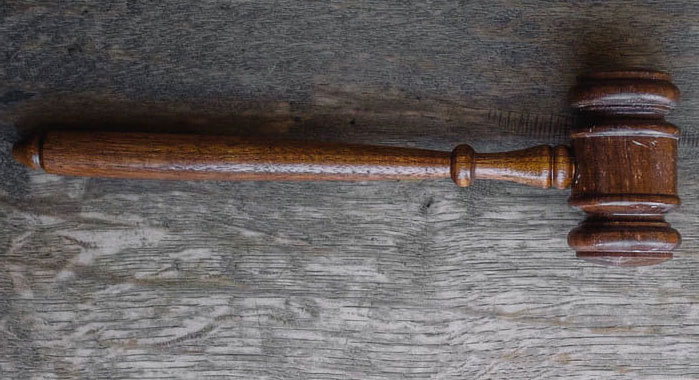Clearing Your Record: How to Get Your Record Expunged
At Findley & Rogers, our motivation as a law firm is to help ordinary people get back the rights they lost due to an old criminal conviction. That’s why we have two main focus areas: restoring firearm rights and clearing criminal records.
Today on the blog, we’re looking at how to get your record expunged. Many Washingtonians have an old felony conviction on their records, and even more have misdemeanors. What you might not realize, however, is that if you meet certain conditions, you may be eligible to go through the expungement process and have your old conviction expunged!
Here’s how to do it.
Why The Expungement Process Matters
Before looking at how to get your record expunged, let’s look at why the expungement process is worth considering.
Any criminal conviction will show up on a background search, and felonies, in particular, can destroy your chances for a job interview, securing a place to live, and accessing lines of credit and financing. Odds are you know this already because you’ve already had to live with it.
There’s also the social hardship. Having a criminal record makes it harder to be an active member of your community. If people know you have a conviction, they’re less likely to trust you and take you seriously. This can cost you many opportunities to be involved in your community, and it can significantly affect your sense of belonging in society.
Expunging your record means you don’t have to deal with this anymore. You can move on with your life as a full member of society.
So then how, exactly, do you get away from this and start off new? That’s where expungement comes in.
How To Get Your Record Expunged
Step 1: Comply with All Court Orders
There are two main requirements in order for you to begin the expungement process. The first is that you must pay back your debts to society by complying with the requirements that the court imposed upon you at your sentencing.
These requirements vary from person to person, but commonly include requirements such as completing your probation, doing community service, and paying fines, restitution, and court fees.
You must complete all of these requirements in order to eventually become eligible to have your conviction expunged. If you have any specific questions about this, our team of experienced attorneys is here to help!
Step 2: Complete the Mandatory Waiting Period
Completing everything the court ordered you to do is the hard part. The other main requirement when thinking about how to get your record expunged is to complete a mandatory waiting period. In other words, you can’t expunge your conviction right away.
The waiting period you must complete before initiating the expungement process ranges from 3 to 10 years depending on your circumstances:
- Most misdemeanors: 3 years
- Domestic violence misdemeanors: 5 years
- Class C Felonies: 5 years
- Class B Felonies: 10 years
During this time, it is essential that you not accrue any further criminal charges. Also note that when you begin the expungement process, you can’t have any new criminal charges currently pending against you.
What Does “Expungement” Do, Exactly?
Expunging an old conviction from your record is formally known as “vacating” that conviction. It removes the conviction from your criminal history. Basically, getting your record expunged is how you get the court to stop broadcasting to reporting agencies that you have a conviction. What this means is that when other people and organizations run a background check on you, your conviction will no longer show up. Instead it will appear as though the case were essentially dismissed.
Expunging a conviction also gives you the right to lawfully state that you have never been convicted of that crime. So if you’re filling out an application and it asks, “Do you have a felony conviction?” you can lawfully say, “no.”
Even though these background checks will often come up empty, the expungement process doesn’t completely erase the conviction. Your charges will still exist in official court records, and anyone doing a deep background check on you may still be able to find it. But for standard background checks, such as those for jobs and rental applications, loan applications, and so forth, you’ll turn up clean.
What If I Have More Than One Conviction?
Some people have more than one conviction on their record: two or more felonies, two or more misdemeanors, or some combination of both. For those with multiple convictions, you might be worried about how you’ll get your record expunged.
Up until very recently, expungement process generally only applied to your most recent conviction; however, don’t lose hope! In 2019 the Washington Legislature changed the law and it is now possible to expunge multiple criminal convictions, depending on the types of charges you had and a few other factors. The process can be complicated, but that’s what a good attorney is for.
If this situation applies to you, let us know when you contact us. We’ll discuss your criminal history during the free consultation and give you a sense of your best options going forward.
Can I Expunge Non-Conviction Information from My Record?
Suppose you were arrested and charged with a crime. Arrests and criminal charges are both parts of your record, even if they don’t lead to a conviction. When it comes to background searches, this sort of information isn’t as bad for you as an actual criminal conviction, but it can still cost you opportunities and cause you hardship.
If you’re wondering how to get your record expunged for this type of information, the good news is that, provided you meet the eligibility requirements, you can request that the police reports created in connection with your case be deleted, but it is not possible to completely erase a court record.
Is Expungement the Same as “Sealing” My Criminal Record?
No — how you get your record expunged and how you seal a record are two different legal processes. The expungement process removes a conviction from your criminal history. Sealing your criminal record makes it so that most people can’t go to the courthouse and look up your record.
In addition to providing some of the same benefits as expungement when it comes to applying for a job, apartment, or credit, sealing your record also provides a powerful layer of privacy. Generally, it is only possible to seal your criminal record if you can prove that your record is causing you very significant hardship.
At Findley & Rogers, we can help you seal your adult criminal record as well as juvenile criminal record.
Are There Any Crimes That Don’t Qualify for Expungement?
Yes, there are several types of crimes that cannot be vacated under state law, including:
- Class A felonies
- DUIs
- Various types of violent crimes
In these situations, your only recourse is a change in state law or a pardon from the governor. Pardons are granted extremely rarely, and it can be an expensive proposition. However, if you think you have a compelling story, we would be happy to discuss your options.
What Can I Do If I Don’t Qualify?
Many people who don’t qualify for the expungement process are only temporarily ineligible. This is usually due to not having completed the waiting period, or not having complied with the court’s orders regarding fines, etc. In these cases, answering how to get your record expunged is as easy as carrying out any of the remaining eligibility requirements laid out by your court sentencing.
If you are not eligible to have your conviction expunged, we’ll let you know during the free consultation. That’s why we encourage you to call us. Even if you can’t clear your record, the certainty of hearing it from a lawyer helps many folks get a sense of closure.
What If the Court Rejects My Expungement Request?
If you decide to work with us through the expungement process, we’ll make sure you present your strongest case to the judge. We are extremely experienced in making sure you understand how to get your record expunged. We have a strong track record of success, and expungement is fairly straightforward as long as you’ve done everything you needed to do.
Let Findley & Rogers Guide You Through the Process
The legal system is complicated and very precise. The expungement process is a lot easier with a skilled attorney working on your behalf to make sure your paperwork is filled out properly and that you’re able to make a good case to the judge.
Findley & Rogers serves all residents of Washington including the I-5 Corridor, the Peninsula, Eastern Washington and everywhere in-between. Call us today for a free consultation, and don’t let a mistake from long ago hold you back any longer. Take the first step towards learning how to get your record expunged today.




